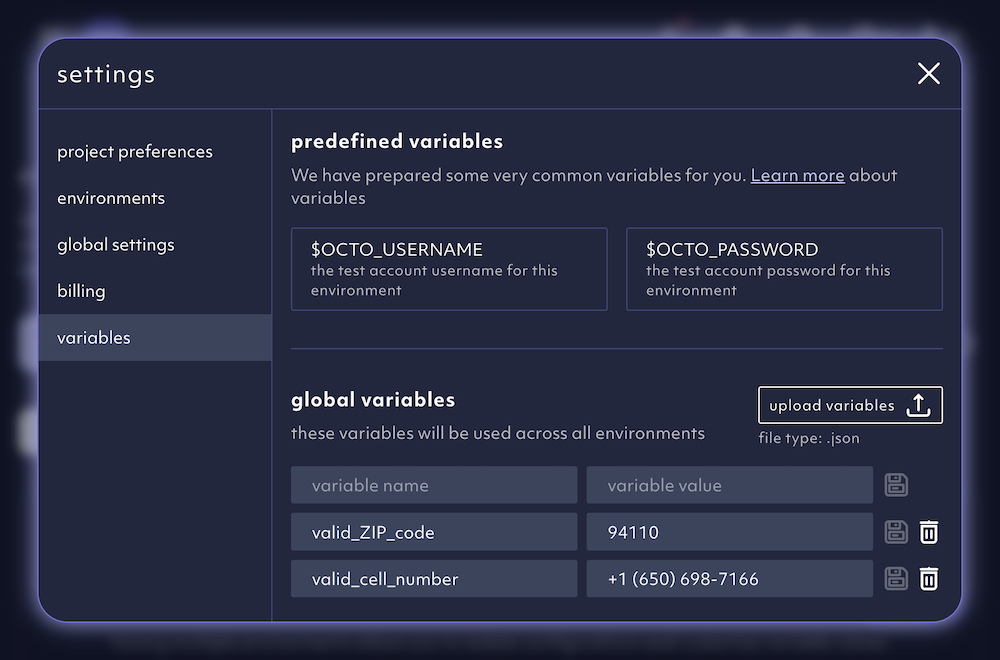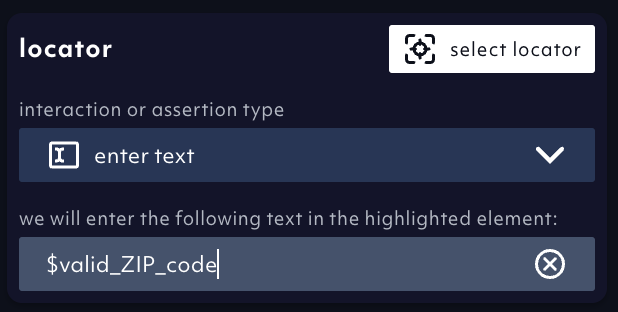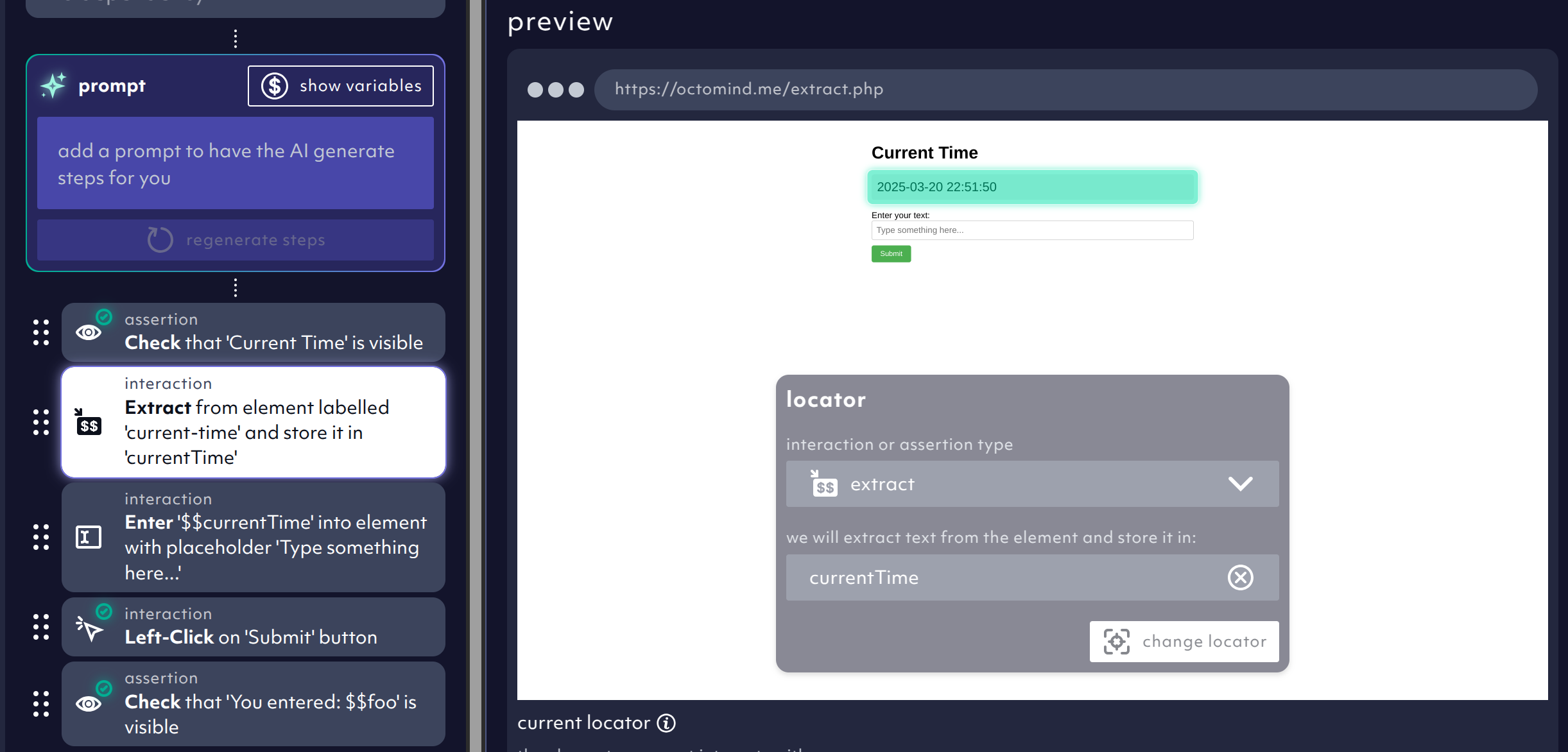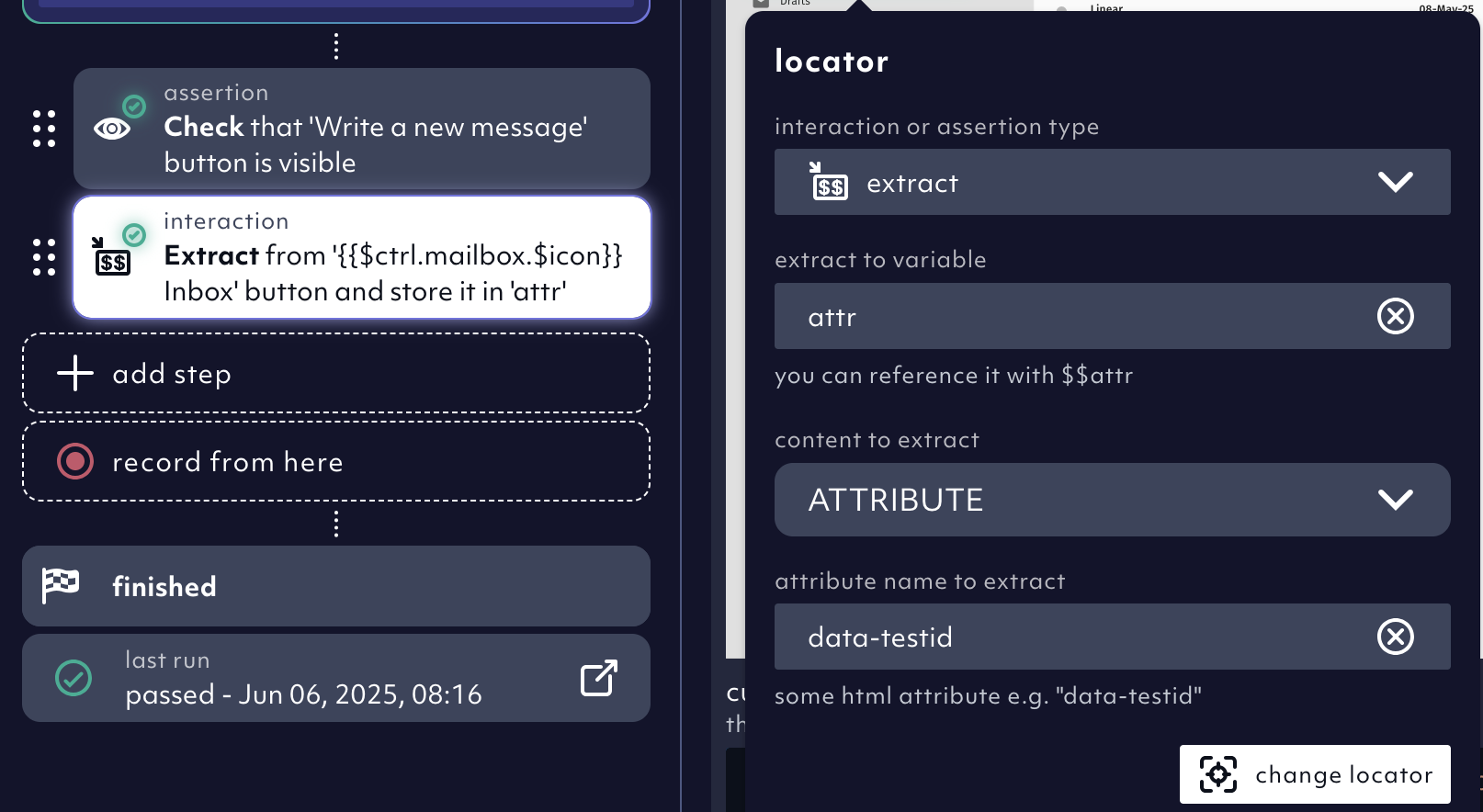$ (e.g. $firstname) by adjusting the enter text step. For each environment you can configure custom variable values.


json file. The file has to follow this format:
Predefined variables:
We use also several predefined variables that do not show up in the default list, but can be used like the variables above:$OCTO_USERNAME: the username you configured for use with your page in the sign up flow or the settings$OCTO_PASSWORD: the password you configured for use with your page in the sign up flow or in the settings$OCTO_URL: the URL of your page$OCTO_STABLE_UUID: a random combination of letters and numbers that will be consistent through multiple references across a single run, but different if you run the agent again - full uuid of 36 characters$OCTO_STABLE_UUID_SHORT: a random combination of letters and numbers that will be consistent through multiple references across a single run, but different if you run the agent again - maximum length of 8 characters.$OCTO_STABLE_RANDOM_CHARACTERS: eight random lowercase letters that will be consistent through multiple references across a single run, but different if you run the agent again.$OCTO_TOTP: 2-Factor Authentication code if you require if for the login. Find out more about 2-FA enrollment$OCTO_EMAIL: email address for email flows (e.g. 2FA) email flows.$OCTO_EMAIL_DOMAIN: domain of the email address for email flows (e.g. 2FA) email flows.$OCTO_EMAIL_PREFIX: prefix of the email address for email flows (e.g. 2FA) email flows.
Dynamic variables:
In addition to the predefined variables, we also support dynamic variables that are generated during the test execution. Dynamic variables are noted as $$varname and will be replaced by their current value. There is also one predefined dynamic variable that can be used:$$OCTO_CLIPBOARD: will template the clipboard content at runtime with the (text) value of the clipboard.

extract value step.
The new drop down option attribute allows you to extract the value of an attribute from an element.
